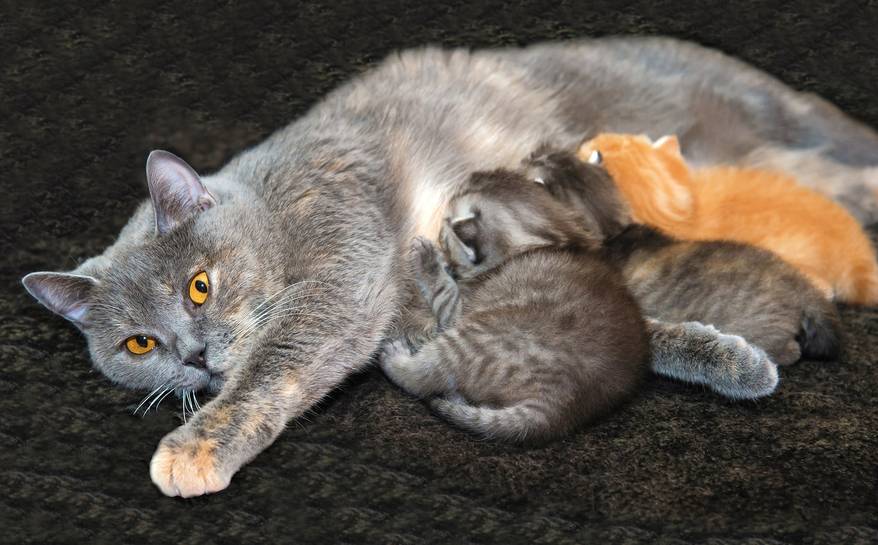
-
Find the right food for your petTake this quiz to see which food may be the best for your furry friend.Find the right food for your petTake this quiz to see which food may be the best for your furry friend.Featured products
 Adult 7+ Small & Mini Chicken & Brown Rice Recipe Dog Food
Adult 7+ Small & Mini Chicken & Brown Rice Recipe Dog FoodFor the unique nutritional needs of mature Small & Mini dogs
Shop Now Adult Small & Mini Lamb Meal & Brown Rice Recipe Dog Food
Adult Small & Mini Lamb Meal & Brown Rice Recipe Dog FoodFor the faster metabolism of Small & Mini dogs
Shop Now Hill's Science Diet Adult Oral Care Chicken, Brown Rice & Barley Recipe Dog Food
Hill's Science Diet Adult Oral Care Chicken, Brown Rice & Barley Recipe Dog FoodClinically proven kibble technology to reduce plaque & tartar build-up
Shop NowFeatured products Adult Indoor Chicken Recipe Cat Food
Adult Indoor Chicken Recipe Cat FoodSupports energy level and beautiful fur in indoor cats
Shop Now Hill's Science Diet Adult Sensitive Stomach & Skin Dog Food
Hill's Science Diet Adult Sensitive Stomach & Skin Dog FoodHighly digestible recipe, gentle on stomachs. Nourishes skin & promotes a lustrous coat
Shop Now Adult Urinary Hairball Control Chicken & Rice Recipe Cat Food
Adult Urinary Hairball Control Chicken & Rice Recipe Cat FoodActively supports the health of the whole urinary system
Shop Now -
Featured articles
 Easy DIY Dog & Cat Toys: Nine of Our Favorites
Easy DIY Dog & Cat Toys: Nine of Our FavoritesBrowse this comprehensive guide for several of our favorite DIY dog and cat toys that are sure to put a little pep in your pet's step.
Read More 15 Pet-Friendly Cities Ideal for a US Road Trip
15 Pet-Friendly Cities Ideal for a US Road TripCheck out our list of pet-friendly U.S. cities that are excellent travel options, offering off-leash dog parks and pet-friendly restaurants & hotels.
Read More My Pet Ate a Lizard — What Should I Do?
My Pet Ate a Lizard — What Should I Do?Learn what to do if your pet eats a lizard, including whether they can be toxic and symptoms to keep an eye on when they've swallowed one.
Read More -

Interested in learning how to foster cats or kittens in your home? Fiona Branton, a longtime foster "parent" to cats, says go for it. Her first volunteer placement was for a pregnant cat she fostered in 2006. When the kittens were born, she was hooked. "They had six kittens and were all just adorable," she says. "It was so much fun." Read on to learn if volunteering to foster kittens or cats would be right for you.
Why Do Shelters Foster Cats?
In the years since her first mama kitty, Branton has fostered dozens of cats in her Erie, Pennsylvania home. Some have stayed just a few weeks, while others have stayed for years.
Most shelters use foster families to care for at least some cats, says Branton, who now serves as the president of the board of directors for Because You Care, Inc. (BYC), an Erie organization dedicated to the rescue, treatment, and placement of stray and abandoned pets. BYC is unique in that every cat that comes to the shelter is housed with a volunteer foster family before being adopted. The organization has found that by placing cats in a home rather than a shelter environment, a cat's personality, habits and health are easier to gauge — allowing BYC staff to place them in homes that are a great match.

Getting Approved
If you want to foster kittens or cats, the first step is being approved by a shelter to volunteer as a foster home. You'll be required to fill out paperwork, and perhaps undergo training and a background check. A shelter employee may even stop by your house to make sure you have the accommodations in place for a temporary pet. Some parameters they might check for are:
- Do you have other pets? They will need to be up-to-date on vaccinations and have the right temperament to welcome another pet into the house.
- Do you have space for the foster cat to be separated? Branton says it's important to have a cat-proofed room where new foster pets can be isolated. She notes there are any number of reasons for temporary isolation, such as if the cat hasn't had her vaccinations, if they get stressed out and causes damage when you're not home, or if they simply needs a place to be by themselves.
- How do other people in your household feel about fostering animals? After all, everyone in the house needs to be on board with caring for a new pet, even a temporary one.
- Do you have the time and flexibility to foster a cat? Part of the reason a cat is coming into your home is to socialize them, so you'll need to be home frequently to interact with them.
- Do you have the patience to foster a cat? Foster families have to understand that some animals might have come from a situation where they didn't learn to not scratch the furniture or jump on the counters. Some cats may also spray urine, hide from people or scratch when you try to pet them. Do you have the patience and compassion to deal with behavior issues?
Questions to Ask the Shelter
You should feel free to ask your own questions during the approval process. You'll want to know the answers to questions like:
- Does the shelter provide food, litter, and cover the cost of medical care?
- Does the shelter have a vet it works with?
- Will you be expected to open your home to potential adopters or take the cat to adoption events?
- Can you ask for a cat to be removed from your home if the match doesn't work?
- Will you have the option to choose what cat or kittens you want to house?
- Will you have the option to adopt the cat if you decide you want to keep them?
The answers to these questions will vary depending on the shelter. No matter what the answer is, just make sure you're comfortable with the shelter's practices and rules before moving ahead.


Tasty Tips

Supplies You'll Need
Before foster cats begin coming into your home, you'll need to think about what you have on hand to care for them. The shelter might provide some or all of these items:
- A carrier: You may need to take the cat to vet appointments or adoption events.
- A high-quality food: Choose a wet or dry food that is appropriate for their age and any health issues the cat might be facing.
- Litter box and litter: If you have a mama cat with kittens, a low-sided cake pan or oven tray might work best as their little legs won't be long enough for a typical litter pan.
- Toys: Part of your job as a foster parent is to socialize the cat, so play is essential.
- A scratching post: You'll want to give your foster kitty a good place to scratch, a natural habit of all cats that should be encouraged in the right places.
Fostering Cats with Special Needs
How long foster cats will remain in your home depends on several factors. Branton says she's had healthy cats stay just a few weeks, while others with specialized needs have remained with her for years. She recently took in a Feline Immunodeficiency Virus (FIV)-positive cat that she expects will remain with her for the rest of their life. The cat was left behind after his previous family moved.
"He's an elderly cat, and he's missing an eye, and he has a really hard time eating," she says. "So he's basically my long-term hospice care cat at this point."
The ASPCA calls this kind of care "fospice" to reflect the blend of taking in a pet in need of a home and caring for a cat that may have difficulty being adopted due to advanced age, illness or behavioral quirks.
"This program involves opening your home and heart to an animal who is not medically healthy enough for adoption, but needs a warm and loving home environment where they can live out their golden years with proper medical treatment," the ASPCA writes. If you volunteer to care for a cat with a condition such as FIV, many shelters will offer training for administering medication or preparing easy-to-eat foods.
Hard to Say Goodbye?
The hardest part of a fostering placement is seeing a cat off to their new home, says Branton.
"Fostering is very rewarding," she says. "But it's also kind of bittersweet, because you're losing a wonderful animal you've fallen in love with. You just have to remember that you're making room for another one to come in." You're also preparing a cat by giving them social skills and kindness to use in a supportive forever home.
If you truly can't say goodbye, the shelter will more than likely allow you to adopt the animal permanently, Branton says.
"That happens a lot," she laughs. "People fall in love and the cat stays."
Branton herself has adopted several cats that started as fosters.
"They work their way into your heart," she says. "You know they're in the right place."


Kara Murphy is a freelance writer and pet parent who lives in Erie, Pa. She has a goldendoodle named Maddie.
Related products
Related articles

Put your cat on a diet without them knowing
Our low calorie formula helps you control your cat's weight. It's packed with high-quality protein for building lean muscles, and made with purposeful ingredients for a flavorful, nutritious meal. Clinically proven antioxidants, Vitamin C+E, help promote a healthy immune system.
Put your cat on a diet without them knowing
Our low calorie formula helps you control your cat's weight. It's packed with high-quality protein for building lean muscles, and made with purposeful ingredients for a flavorful, nutritious meal. Clinically proven antioxidants, Vitamin C+E, help promote a healthy immune system.

